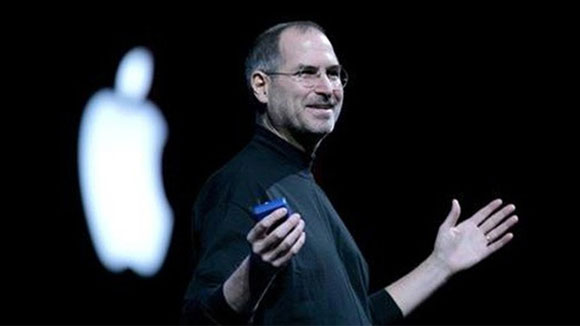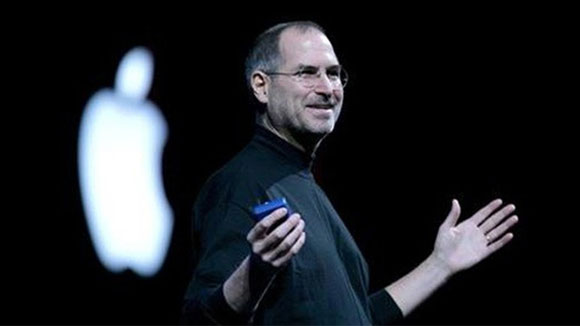

In order to be successful one has to have dreams and a clear vision. The vision then needs to be acted upon. No amount of action can be sustained without forming a habit, and successful CEOs all have habits that help their actions be more consistent.
1. They read books.
Reading is not just a hobby, but a key component in the success of many business leaders. The benefits of reading extend beyond leisurely entertainment and can contribute to enhancing the intellect, knowledge, and wisdom of an individual. In fact, reading has been identified as a common trait among most successful CEOs, entrepreneurs, and leaders worldwide.
Avid readers are known to gain a fresh perspective, find inspiration and solutions, develop empathy and a better understanding of people, and expand their imagination and creativity. It’s not just non-fiction books that are essential in the world of business, as fiction books can provide a new perspective and help enhance creativity. Bill Gates is a well-known example of an avid reader, who regularly shares his favorite books with the public, showing the world that reading is essential for growth and success.
2. They ask questions.
Asking questions is an essential skill that can benefit not only CEOs but everyone in different aspects of life. It is through questioning that one can gain knowledge and insights that could lead to solutions and innovations. However, successful CEOs take this habit to another level. They ask the right questions that challenge the status quo and push boundaries. They are not afraid to question the norm and challenge the corporate orthodoxy. As Andrew Cosslett, the CEO of the InterContinental Hotels Group, suggests, the big prizes in business are found when you can ask a question that challenges the usual way of doing things. Asking the right questions is not only about obtaining information, but also about stimulating creativity, encouraging critical thinking, and promoting innovation. It is a habit that requires practice, patience, and refinement, but the rewards can be immense.
3. They wake up early.
Show me a CEO that wakes up late and you will show me a mediocre CEO. Successful CEOs are early risers, according to Sir Richard Branson, CEO of Virgin. Waking up is a habit that needs to be worked on and maintained. Waking up early gives you quiet time–time to reflect, write, read or workout.
4. The have a set routine.
Successful CEOs have a consistent morning routine that helps them settle their busy minds. They wake up early, usually around the same time every day, and follow a set routine for the first 60-90 minutes of their day. This routine typically includes activities that set the tone for the rest of the day, such as meditation, exercise, journaling, or reading. By having a consistent morning routine, successful people can reduce decision fatigue and create a sense of order and structure in their lives. They can start their day with intention and purpose, rather than feeling rushed and chaotic. This helps them maintain a sense of calm and focus throughout the day, which is essential for achieving their goals and staying productive.
5. The manage their time.
One of the essential traits of successful CEOs is their ability to manage their time effectively. They recognize that time is a precious and finite resource, and they prioritize it accordingly. In fact, many CEOs have implemented strict time management practices to help them stay on track and minimize wasted time. For instance, Carlos Ghosn, the CEO of Nissan and Renault, is known for scheduling non-operational meetings for a maximum of an hour and a half. This approach allows him to avoid lengthy, unproductive meetings that can take up valuable time that could be spent on more critical tasks. Additionally, by setting boundaries around his time, Ghosn can focus on his top priorities and maintain a healthy work-life balance.
6. They exercise and meditate.
The importance of taking care of one’s physical and mental health cannot be emphasized enough, especially for individuals in high-stress jobs such as successful CEOs. By developing and maintaining healthy habits such as regular exercise and meditation, CEOs like Jamie Dimon of JP Morgan (making $20 million a year) can ensure their well-being and prevent potential setbacks that could cost both the CEO and the company valuable time and resources (roughly $54,700 lost per day of missed work). In addition to the personal benefits of staying healthy, these habits also save CEOs significant amounts of time and money in the long run. For instance, by taking care of their health, CEOs can avoid illness or injury that could force them to miss work and cost their company thousands of dollars per day in lost productivity. Therefore, prioritizing self-care is a wise investment not only for CEOs but for anyone who values their time and well-being.
7. They are motivators.
Motivating employees is a crucial part of a CEO’s job. Successful CEOs know that motivated employees are key to achieving company goals. They understand that different employees are motivated by different things and use various techniques to motivate them. For example, some CEOs like Satya Nadella, CEO of Microsoft, motivate employees by setting a strong vision and empowering them to contribute to the company’s success. Others like Jeff Bezos, CEO of Amazon, motivate employees by offering them challenging work and giving them opportunities to learn and grow. In addition, some CEOs like Mark Zuckerberg, CEO of Facebook, motivate employees by creating a positive work environment and fostering a sense of community among employees. Ultimately, the ability to motivate employees is one of the most important qualities a CEO can possess.
8. They take time for themselves.
Successful CEOs understand the importance of taking time for themselves. They know that constantly working without taking breaks can lead to burnout and decreased productivity. Thus, they make a conscious effort to schedule personal time for activities like walking, relaxing, meditating, mentoring, and reflecting. Jeff Weiner, the CEO of LinkedIn, has taken this to heart by blocking out 30-90 minutes of his calendar each day for personal time, coaching, and reflection. This allows him to recharge and reflect on his priorities and goals, which ultimately helps him make better decisions. By controlling their time, successful CEOs ensure that they remain focused and productive, instead of letting their schedules control them. They understand that taking care of themselves ultimately leads to taking care of their business.
9. They don’t use electronics before bed.
The presence of digital devices in the bedroom can be a significant hindrance to getting a good night’s sleep, and science backs this up. According to research, the blue light emitted by electronic devices such as smartphones and tablets can interfere with our natural sleep cycles, causing restlessness and even insomnia. As a result, successful individuals like Arianna Huffington, the founder of The Huffington Post, have made a conscious effort to eliminate digital devices from their bedrooms. In her book “Thrive,” Arianna stresses the importance of getting enough sleep, and how a device-free zone can help achieve it. She shares her personal experience and offers practical tips on how to create a healthy sleep environment. By following this habit, you can reduce stress, boost productivity and increase overall well-being.
10. They network.
Networking is a crucial aspect of the success of CEOs. They understand the importance of expanding their network, and the benefits that come with it. A strong network allows them to stay on top of industry trends, gain insights into their competitors and potential partners, and find new opportunities for growth. In addition, networking helps them to attract new talent to their organization. By connecting with professionals in their field, successful CEOs are able to identify top talent, build relationships with them, and convince them to join their team.
Moreover, networking with other CEOs provides a valuable opportunity to exchange ideas, discuss challenges, and share experiences. It can be an invaluable source of mentorship, enabling them to learn from those who have faced similar challenges and overcome them.
Ultimately, the ability to network effectively is a critical component of the success of any CEO, and it requires a commitment to building relationships, maintaining connections, and constantly seeking out new opportunities to expand their network.
